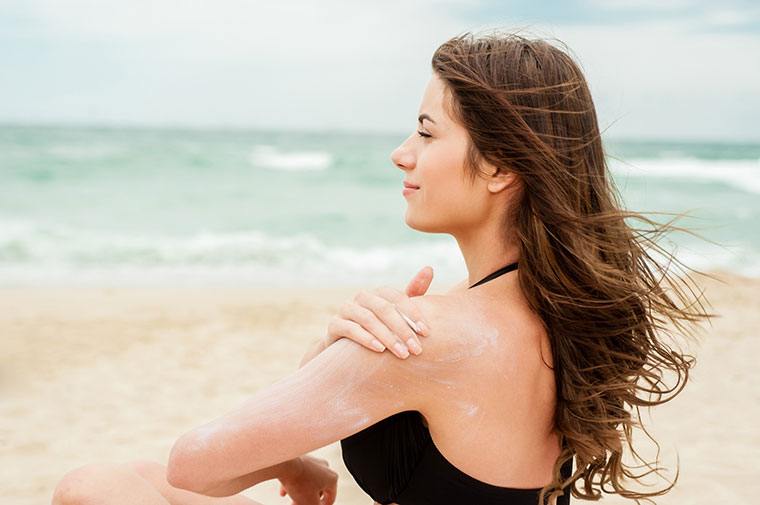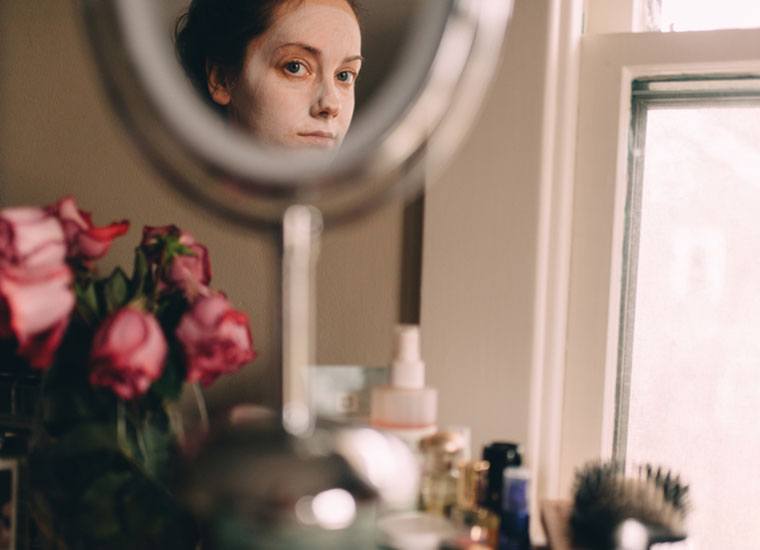Everything You Need to Know About Those Dark Spots on Your Face
You may be familiar with whiteheads, cystic breakouts, and pore congestion (in some cases more familiar than you'd like)—but what about the darker spots that don't fall into any of those categories?
These shaded areas are called hyperpigmentation, and they show up as areas of color that are slightly darker than your regular complexion. (I like to think of them as wannabe freckles.)
"They're mostly related to a combo of genetics and sun exposure," says Arielle Nagler, MD, an associate professor in the Ronald O. Perelman department of dermatology at NYU Langone. "Some people are more predisposed to them than others."
Also: They're frustratingly difficult to get rid of (especially since bleach creams can be pretty terrifying). So what's the deal?
Here's what you need to know about hyperpigmentation—including how to make those spots go away.

How did these dark spots get here, anyway?
No matter how diligent you are with applying sunscreen, it's probably not protecting you 100 percent. "It doesn't block all UV rays," says Dr. Nagler. "Even if you're using it regularly, you have to be reapplying every two hours—[especially] if you go into the pool or sweat a lot," she says.
And there are a few more under-the-radar causes of dark spots (sometimes called age spots). "When acne or even a cut is in the healing process, it can also cause post-abrasion hyperpigmentation, in which the cells increase the amount of melanin produced," says Alexandra Wagner, a Los Angeles-based holistic facialist with her own skin-care line. "This is triggered and exacerbated by the sun."
Other culprits? Certain medications—like the birth control pill, antihistamines, some antibiotics, and Accutane—make you more sensitive to natural light. "It can create photo sensitivity, which can produce more extreme melasma [which is skin discoloration]," she says.
Then there's hormonal hyperpigmention, which looks the same but can be more difficult to treat, she notes. "Hormones can be a factor and lead to larger melasma spots," says Wagner. "That's generally caused by the pill or pregnancy—and sun exposure doesn't help."

What you can do about it
Eliminating dark spots can make fighting blemishes look easy (never thought I'd say that). It's true, though—there's no quick fix, and it takes patience to wait for the different treatment options to be effective.

{{post.sponsorText}}
But getting rid of them is possible. Here are some pro tips:
Consistent sunscreen application. Wagner's number-one recommendation for fighting hyperpigmentation? Sunscreen."You have to protect dark spots from increased exposure to the sun, or the pigmentation will keep coming back," she says. "But you'll notice the spots will fade if you're really good about exposure and sunblock." Reapply, reapply, reapply—and be sure to use (natural) sun block with both UVA and UVB protection.
Exfoliation and certain topicals. Removing the dead and dull skin cells on the reg is key, as are serums and creams that contain arbutin kojic acid and white mulberry. Some clean brightening options include Wagner's White Tiger Serum ($140), Marie Veronique's Lightening Serum ($110), and Vapour's Essence Restorative Night Treatment ($90). "Topicals can take anywhere from a month to two months to see the skin even out," Wagner admits. "If you're diligent, you'll eventually notice a difference."
Spa-level exfoliation. Hit up your aesthetician for microdermabrasion or light to-medium-strength peels to (gently) remove the layer of your skin containing the pigmentation.
Lasers. Studies have shown that these can help with severe dark spots. They can also require several treatments—and note that they don't come cheap (sessions range from $100 to $1,000). Whichever route you take, don't get discouraged when the pigmentation doesn't vanish like magic—the best things come with time, after all.
In terms of avoiding skin damage, here are 10 things you probably don't know about sunscreen but should. And to double up on protection, these are the 6 best moisturizers with SPF.
Loading More Posts...